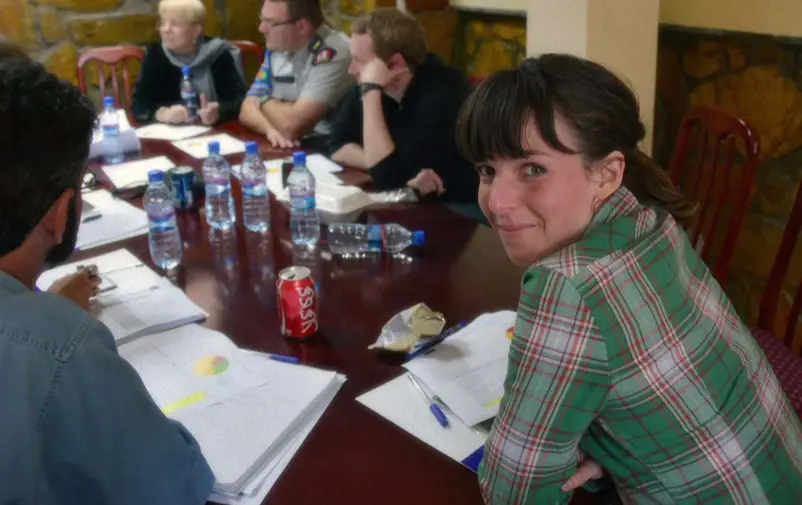
The 1325 Scholarship was established in memory of gender equality expert and peacebuilder Zaida Catalán.
This research brief discusses the role of youth in relation to rebel-to-party transitions and how to improve the inclusion of youth in such processes, bringing about genuine youth participation.
There is a growing recognition that youth are key actors in achieving sustainable peace in post-war settings. Still, both national political leaders and international policymakers often see large youth populations as a potential threat to stability. The main youth-centred strategy of former rebel parties in power has been to control and co-opt this population without opening up for genuine youth representation.
This research brief series has been initiated through a collaboration between the Politics After War (PAW) research network, the Folke Bernadotte Academy (FBA), and the United Nations Depart¬ment of Peace Operations, Office of Rule of Law and Security Institutions: DDR Section (UNDPO/OROLSI/DDR) with the aim to provide research perspectives and scientific evidence on the inter¬section of DDR and politics with a particular em¬phasis on the transformative dynamics of armed groups and combatants.
The Political Dynamics of DDR Key Research Findings
Political Integration and Post-war Elections
Political Engagement by Former Armed Groups Outside Party Politics
Peace Agreements and the Political Integration of Armed Groups
DDR and Post-War Politics: Lessons from Northern Ireland
Rebel Party Organization and Durable Peace after Civil Conflict
Women and Rebel to Party Transitions
Ideological Moderation in Armed Groups Turned Political Parties
MORE FROM HOME
Are you a young peacebuilder at the beginning of your career with a strong commitment to women, peace and security? Do you have experience working in this field in the Democratic Republic of Congo or Afghanistan and want to take your commitment to the next level? Then you have the opportunity to apply for the 1325 scholarship for 2026.
2025-11-06 15:30FBA has both increased and adapted its work in Ukraine in the wake of Russia's invasion.
FBA in UkraineKlara Grenhagen works as a specialist at FBA's Africa unit with a focus on dialogue, reconciliation and peace processes.
More about our expertsFBA is part of Sweden’s development aid within the area of peace and security
Read more about the countries where we work